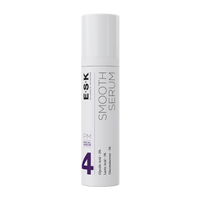
Science Hub
May 2025 Science Wrap Up
29 May 2025
Dr Ginni Mansberg
May seems to have crept up on us out of nowhere. We spent most of it away to be honest. We started out back in London. I spoke about the impact of hormones on the skin at the AM (Aesthetic Medicine) London event to doctors, nurses and aestheticians. This year our stand was joined by 2 of our incredible KOLs (key opinion leaders); respected Manchester- based aesthetician and longevity specialist Dr Kai, and aesthetic plastic surgeon Dr Siva Kumar from East Grinstead. Working with this calibre of KOL is a dream come true for me! We followed our London work trip with a spot of hiking in Croatia. Sorry I will shut up now (yes it was even better than it sounds!). Let’s talk science- here’s this month’s journal haul!
AHA vs BHA vs PHA: What’s the real deal with acids?
If you’ve ever stood in the (virtual) skincare aisle wondering whether you need glycolic acid or salicylic acid, or what on earth a polyhydroxy acid even is, you’re not alone. A brand-new review in the Journal of Drugs in Dermatology has done the homework for us, and it’s full of juicy insights. Whether you’re looking to combat skin aging, collagen loss, acne or pigmentation, hydroxy acids will be your best friend, so long as you pick the right one for your skin.
Here’s the cheat sheet: AHAs (like glycolic and lactic acid) are great for brightening and smoothing, for boosting collagen and for renewing your skin cells. And they help control acne, but can irritate sensitive skin. BHAs (like salicylic acid) go deep into oily pores, making them acne’s worst enemy. And PHAs? They’re the newer, gentler kid on the block, ideal if your skin freaks out at just the mention of an exfoliant. Bonus: PHAs help with hydration and calming inflammation, including in people with rosacea! Small wonder that our PHA serum, Gentle Glow is beloved by everyone in the ESK office!
Whether it’s for breakouts, pigmentation, rosacea, or just glowier skin, the key is picking the right acid (and strength) for your skin type, and always pairing it with SPF. Acids can do wonders, but they don’t play well with sunburn.
Smooth Serum is a night treatment formulated with 3% Glycolic acid, 1% Lactic acid, and 1% Gluconolactone. This gentle AHA blend supports the appearance of skin texture and surface renewal, helping maintain the look of even skin tone. Caution: Not recommended for very sensitive skin or skin prone to rosacea.
Smooth Serum
Key features:
Can what you eat really help with eczema? Maybe yes!
A new review just dropped in The Open Dermatology Journal, and it’s all about something we get asked a lot: can diet help manage eczema and dermatitis? The answer? It’s complicated, but promising! According to the latest research, food allergies can play a big role in triggering flares, and gut health seems to have a big say in how inflamed your skin gets (hello, gut-skin axis!).
The study looked at everything from probiotics, vitamin D supplements and omega-3s (good!) to processed foods and food allergens like dairy and eggs (not so great for some). Turns out, a diet rich in colourful, plant-based foods, anti-inflammatory fats, and gut-loving goodies might not cure eczema, but it could definitely help calm it. Bonus points if you're cutting down on ultra-processed snacks while you’re at it. Vitamin supplements- outside of vitamin D aren’t as helpful as a vitamin rich diet.
So, if you’re struggling with dermatitis or eczema, it's worth a chat with your doctor (and maybe a dietitian) about tailoring your plate. Food isn’t a magic bullet, but it just might be part of the solution.
Is your acne hormonal? What this new study found might surprise you.
A fresh study in the journal Advances in Dermatology and Allergology has just unpacked the link between hormones and acne in women, and the findings challenge a few long-held beliefs. Researchers looked at women with acne who were tested for hormone imbalances (what doctors call biochemical hyperandrogenemia or BHA). Turns out, a whopping 71% had some form of hormone disruption, with an adrenal form of progesterone and androstenedione being the most commonly elevated.
But many women with no obvious hormonal issues like irregular periods or hirsutism (excess hair growth) still had hormone imbalances. That said, those with hirsutism or acne on the chest or back, were more likely to have BHA.
Another key takeaway? Hormone levels didn’t actually predict how well someone would respond to treatment. What did? A long history of acne, especially if it started in adolescence and just kept going. Women with “persistent” or “recurrent” acne were less likely to respond to standard treatments, especially if hirsutism was present.
The bottom line? If you’re a woman with long-standing acne, especially with body breakouts or excess hair, it’s worth checking in with your doctor about hormone testing. And maybe even screening for polycystic ovarian syndrome or PCOS. But even if your hormones are off, you will probably still respond well to regular acne treatments. For those with more stubborn symptoms, adding a hormone-balancing therapy might make all the difference.

